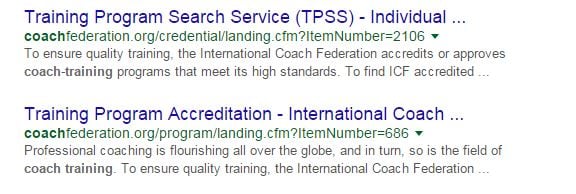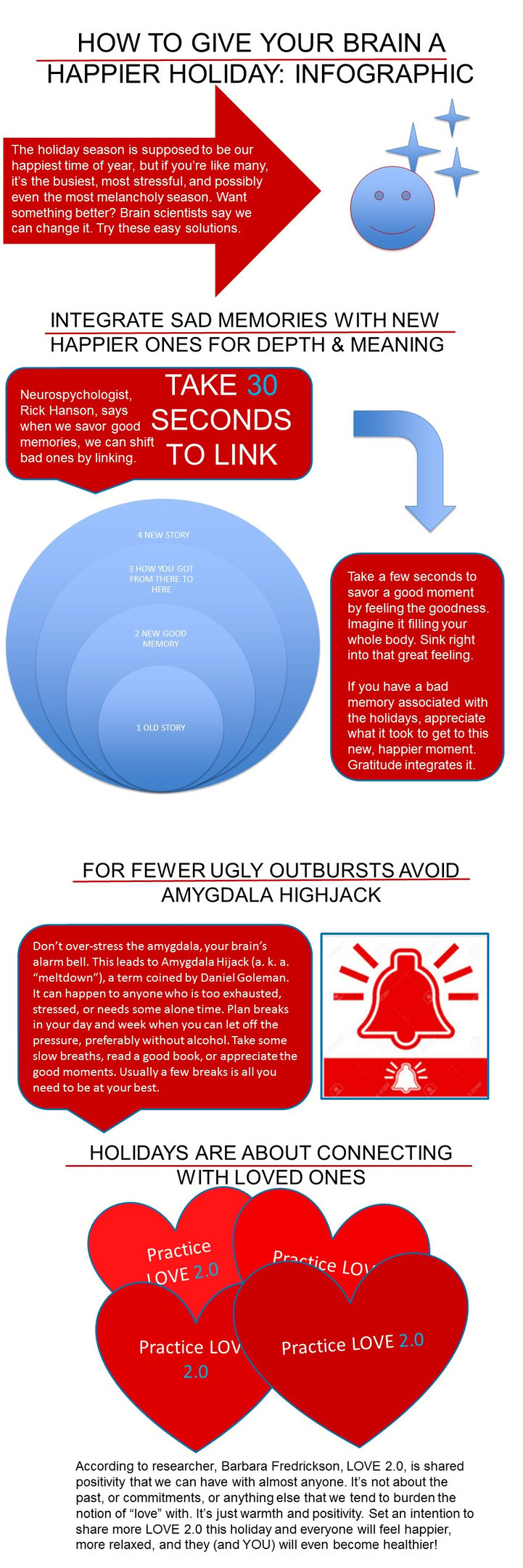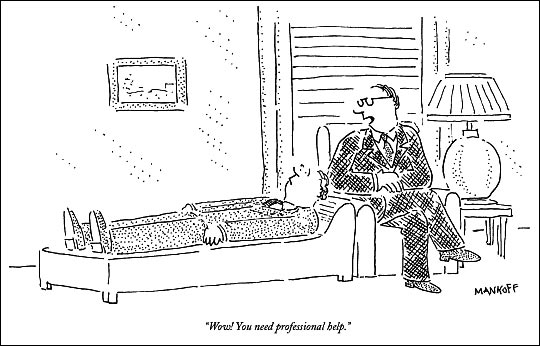
Mindfulness is a popular buzzword in the fields of coaching, psychotherapy, neuroscience and psychology, because Westerners have discovered ample evidence of what Eastern contemplatives have known for millenia: that practicing simple brain activities, known collectively as mindfulness, reaps tremendous mental, physical, social, and spiritual rewards.
Being told that mindfulness works and knowing how it works, however, can mean the difference between practicing mindfulness daily (and receiving the benefits) vs. forgetting about it all together.
So here's how mindfulness works.
Mindfulness, itself, is one of a larger collection of brain-training modalities that comprise what neuroscientists now call, self-directed neuroplasticity. These are thought-based exercises that literally utilize the mind to change your brain for good. They don't just change the content of your thoughts; they literally change the size and functioning of specialized areas of your brain. Something that, up until about twenty or so years ago was believed to be impossible.
The ramifications of these discoveries and new approaches are extraordinary. People don't just feel better when they practice mindfulness; their relationships, health, even longevity improve.
Your coaching clients can change their own brains for good - meaning better focus, less stress, less negativity, more optimism, even more happiness and wisdom - but they will likely need your assistance in learning to do so.
That's where coach-assisted neuroplasticity comes in.
This article can get you started with coach-assisted neuroplasticity, but I want you to know, there's much more to be learned about it. Check the bottom of this blog post for where to learn more.
The brain, though highly plastic, never-the-less has quite a few areas that are specialized. Some are devoted to the senses; such as hearing, sight and touch; some for reacting swiftly, such as the fight-flight-or-freeze function of the primitive brain stem, some for emotion and some for thinking. These specialized areas can be coopted by other specialty areas when something isn't working right.
For instance, if I lost my eyes, my occipital lobe, specialized for sight, would stop receiving visual input. Neurons from adjoining areas, for instance areas in my brain specialized for hearing or touch, might then move into the unused occipital lobe, the result of which could improve my ability to notice sounds (improved hearing) or to feel more acutely (ability to learn brail).
To understand the neuroplasticity of mindfulness, it's important to know about a few more specialized areas of the brain.
One such area is the prefrontal cortex (PFC), a part of the brain located right behind your forehead that's specialized in "executive function", which includes reasoning as well as modulating and integrating reactions and emotions that are registered in other areas of the brain. The PFC is the most modern, and in some ways, most human and most mature of brain areas. It is either absent or less developed in our mammalian and primate relatives and doesn't become "mature" in humans until around age 30. (This explains a lot about teenagers and twenty-somethings!)
The PFC has an interesting left/right duality of function. The left PFC tends to to reason calmly and is more "positive" than the right. The right PFC tends to get involved in negative evaluations, worry, stress, and even depression.
Both PFC sides are connected to an older part of the brain, the amygdala, which is sometimes called the brain's alarm bell. The amygdala registers negative input. The more negative input it gets, the larger and more dominant it grows and the more negative thoughts you'll have, as a result. If the amygdala were a car, then thinking with the right PFC, the worry side, would be like stepping on the gas pedal. Thinking with the left is like putting on the brakes.
This is important for understanding the benefits of mindfulness.
Interestingly, the amygdala is right next door to the hippocampus, which is responsible for learning and putting things in context. When the amygdala is working overtime, resulting in more negativity and growth, the hippocampus tends to shrink, resulting in a reduced ability to learn from mistakes or put things in context. So you have more negativity and stress, less learning and understanding of context. The fight-flight-or-freeze response could get stuck in the "on" position.
Whatever thoughts you habitually focus upon become "hardwired" into your brain, so the more you think with your right PFC, the more negatively you see the world, which then results in more stress, pain, anxiety and possibly depression. Not a pretty picture and all too common. So how can you change this negativity bias that we're all vulnerable to?
Mindfulness can help.
Let's say your client is a struggling small business owner who has laid off a team of ten, because his business isn't earning enough to pay their salaries. Some of them were your client' friends and colleagues for years, making this was a highly emotional decision.
Now your client is faced with running a struggling business without help. He's overwhelmed and feels guilty, frustrated, even angry; and seems stuck in the fight-flight-or-freeze response. He can't keep up with the business and his home life is a mess. He's hired you to help him turn around the business, but you've observed that he also needs to turn himself around.
What are the options?
Although your client may view his business as a pressing emergency, the business will go under without him and his negativity may be pulling it down faster than he realizes (according to research by Marciel Losada and Barbara Fredrickson, negativity is associated with failure, while positivity is associated with flourishing, both professionally and personally). He could use less right PFC activation and more left PFC activation.
But your client may not take kindly to reciting positive affirmations or keeping a gratitude journal, two tools that coaches sometimes use to activate more positivity. In fact, people who are stuck in negativity tend to see those tools as silly and annoying. So start with something less obviously positive, such as mindfulness.
There are some tools out there, that are lumped in with mindfulness, that are expressly positive, but at its purest, mindfulness is about experiencing or noticing life without evaluating it. And since the fight-flight-or-freeze response is activated, to some extent, anytime we evaluate something negatively, just interrupting that habit on a frequent basis can begin to change negative wiring.
You do not have to sit in meditation to practice mindfulness.
In fact, it takes no extra time, at all, so even clients who are chronically rushed can do it.
Before you proceed, ask your client if negativity and distress have long been common for him, or whether his current state is specifically related to his situation. If it's the former, he may need more help than you can offer, as a coach. Don't hesitate to recommend a therapist, if he seems to need one. For the sake of this example, though, let's say he's generally optimistic, but the struggle of managing his failing business has gotten him stuck in some bad habits.
Explain to him the impact of his thoughts and feelings upon his brain and how his new faulty wiring may be confounding his attempts at success. Then explain that a mindfulness tool could help him rewire for success and ask if he'd be open to trying it. There's a good chance he'll say, "Yes".
Here's a simple mindfulness exercise that can make a dramatic difference.
Simply turn off the usual chatter that most of our minds engage in throughout the day, such as mentally criticizing others, ruminating about perceived slights, or worrying about what could go wrong. A lot of it is negative. Instead, notice surroundings without evaluating them.
The brain is designed to think, so turning it off isn't as easy as it sounds. That's okay. The point of this exercise is to notice one's thinking and refocus again on non-thinking, non-evaluating. Refocusing is like a muscle that strengthens as it's exercised, so the more you catch your brain thinking, the more you get to exercise your ability to refocus.
The second point of this exercise is that any additional amount of time that the brain isn't thinking negatively is time when the connection between the right PFC and amygdala is weakened.
Over time, the negativity habit is reduced.
It's not necessary to eliminate it altogether, just reduce. 100% positivity carries its own problems. Ask your client to practice this mindfulness exercise several times per day while standing in line at the bank, for instance, or walking the dog, washing dishes, or anytime he doesn't need his mind to explicitly process information. Occasionally, ask him what he notices as a result of "not thinking".
As little as 20 minutes of mindfulness can make a difference.
Over a period of weeks or months, the fight-flight-or-freeze response will be triggered less often, the negative amygdala may become smaller, the hippocampus may begin to grow, so learning and perspective can improve, and your client may think with his left PFC more and with his right PFC less. He'll begin to get the clarity he needs to make good decisions and be able to see more opportunities and act upon them appropriately.
There's a good chance your client will turn around his business without needing your expressed assistance, because he already has the skills and knowledge he needs from starting it, in the first place. He just needed to get back to a more positive outlook on life. However, he also will be easier for you to coach to success, now that his mind has shifted more toward positivity. This is just one mindfulness tool.
There are many more coach-assisted neuroplasticity exercises.
To learn more about neuroplasticity, read books by the following neuroscientists: Daniel J. Siegel, Richard J. Davidson, Stephen W. Porges, and Rick Hanson.
To learn more about the brain on coaching and coach-assisted neuroplasticity exercises, click below:





















 Positive Psychology
Positive Psychology


